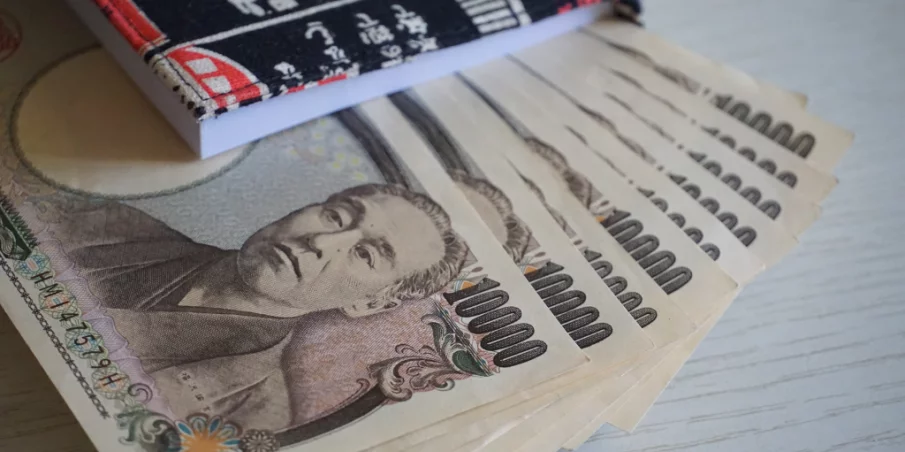NISA for Expats in Japan: Build Wealth with Tax-Smart Investing

Are you living in Japan and looking to make your money work harder? If you haven't heard about NISA, it's definitely time to change that! NISA offers a fantastic way to grow your investments while saving on taxes. Let's break down what it is and how you can make the most of this opportunity.
Understanding NISA: The Basics
NISA, short for Nippon Individual Savings Account, is like a special investment basket where your returns grow tax-free. Normally, if you make money from stocks or funds, the government takes a 20% cut. With NISA, you keep all of it!
Think of it as the Japanese government giving you a helping hand in building your financial future.
Who's Eligible for NISA?
Good news for expats: If you're a resident of Japan and over the age of 18, you're eligible to open a NISA account.
How NISA Works
- Choose a Bank or Broker: Lots of financial institutions offer NISA accounts. Do a bit of comparison shopping to find one that suits you.
- Open Your Account: The process is similar to opening a standard bank account.
- Pick Your Investments: This is where things get exciting! You'll need to choose from a list of NISA-approved investments (stocks, ETFs, mutual funds, etc.).
- Invest & Watch it Grow! There are annual investment limits, but within those, your money works for you without the taxman taking a bite.
NISA: Your Tax-Saving Secret Weapon
Imagine investing ¥1,000,000 and it grows 5% annually. Over five years without NISA, the government takes a chunk of your earnings. With NISA, you keep the whole amount and reinvest it, growing your money even faster!
Getting Started with NISA
- Find the Right Broker: Look for low fees and a wide range of NISA-eligible investment options.
- Do Your Homework: Before investing, research the companies or funds you're interested in. Understand the potential risks and rewards.
- Remember the Limits: Check the current NISA investment limits to plan accordingly.
Things to Keep in Mind
- NISA-eligible investments can change, so stay updated.
- You can only have one NISA account at a time.
- Think long-term! NISA is powerful for investments you plan to hold for years.
Types of NISA: Finding the Right Fit
You might have heard about different types of NISA – this is where things can get a bit confusing. Let's simplify:
-
General NISA: The classic option. Gives you a larger annual investment limit to work with.
-
Tsumitate NISA: The "slow and steady" approach. It has a lower annual limit but encourages long-term investing with regular contributions. Great if you want to develop a disciplined investing habit.
-
Junior NISA: Think of it as the headstart NISA for your kids (if you have them). It allows you to invest for their future, also with tax benefits. However, this type has age eligibility limits.
Which NISA is Right for You?
It depends on your goals and how you like to invest:
- Want flexibility and potential for bigger gains? General NISA might be suitable.
- Prefer building wealth gradually? Tsumitate NISA teaches consistency.
- Investing for your child's future? Junior NISA is worth exploring.
Important Note for Expats
While NISA is a fantastic opportunity, there are a few things expats should consider:
-
Language barrier: Most NISA information and services are in Japanese. If Japanese isn't your strong point, look for a broker with good English support.
-
Possible repatriation: If you plan to leave Japan eventually, figuring out how to handle your NISA account when moving your assets will be important.
-
Global investing: NISA often focuses on Japanese stocks and funds. To build a truly diversified portfolio, you might want to combine it with global investment options accessible to you.
NISA: Not a "Get Rich Quick" Scheme
Remember, NISA is a powerful booster for long-term investing, not a way to make fast money. Markets go up and down; what matters is playing the long game.
Where to Learn More
- Official Source: Check the Financial Services Agency (FSA) website for the latest rules and regulations: https://www.fsa.go.jp/
- Your Broker: They should have tons of resources specifically about their NISA offerings.
- Reputable Financial Blogs & News Sites: Get insights and analysis on NISA, especially ones geared towards an expat audience.
Maximizing Your NISA: Smart Investment Choices

You've got your NISA account set up...now what? Picking the right investments determines the power of those tax benefits. Here's where to focus:
-
Know Your Risk Tolerance: Are you comfortable with ups and downs in the market, or do you prefer steady and safer options? This is crucial to match your investments accordingly.
-
Time Horizon: When do you expect to need the invested money? NISA shines when you think long-term (5+ years). Short-term goals might need a different approach.
-
Diversification is Key: The classic "don't put all your eggs in one basket." Spread your NISA investment across different types of assets (stocks, bonds, ETFs) and sectors to reduce risk.
Popular NISA-Friendly Options
-
Individual Stocks: If you enjoy research, select companies with good track records, strong potential, and that align with your investment philosophy.
-
Index Funds & ETFs: These track an entire market index (like the Nikkei 225) and offer automatic diversification at a low cost. Great for beginner and long-term investors.
-
REITs (Real Estate Investment Trusts): If you want income-producing assets, REITs offer exposure to property without the hassle of directly owning it.
Research is Essential
Before putting your hard-earned money in, learn about these options. A good starting point:
- Morningstar Japan: (https://www.morningstar.co.jp/) Great for researching funds and stocks.
- Your Broker's Resources: They often have educational materials and analysis.
- Financial Blogs: Many bloggers offer investor insights and even NISA-specific recommendations.
NISA as Part of the Puzzle
NISA is awesome, but it's one tool in your wealth-building toolbox. Consider:
-
Emergency Fund: Have easily accessible cash for unexpected life events before investing.
-
Employer-Sponsored Plans: Does your company offer a retirement or savings plan? Take advantage if they do.
-
Global Investing: For true diversification, consider investing outside of Japan as well. This requires additional accounts and research.
NISA FAQs for Expats

Q: I'm not confident in my Japanese. Can I still open a NISA account?
A: Yes, but it might be more challenging. Some financial institutions offer English-language support, specifically catering to expats. Additionally, online brokers may have English-friendly platforms. Seek out those options and consider getting help from a Japanese-speaking friend or a financial translator if needed.
Q: Can I transfer my existing investments into a NISA account?
A: Unfortunately, no. NISA-eligible investments need to be purchased within the NISA account itself. You cannot simply transfer over existing holdings.
Q: What happens to my NISA if I leave Japan?
A: This is where things get complex. You may have options to transfer your NISA holdings to a regular investment account (losing the tax benefits), sell them, or potentially maintain the NISA while abroad. Consulting a tax specialist with cross-border financial experience is strongly recommended in this situation.
Q: Are NISA dividends taxed?
A: Dividends earned within your NISA account are also tax-free! This is a huge benefit for income-generating investment strategies.
Q: I'm also interested in investing outside of Japan. How does NISA fit in?
A: NISA is a great starting point but might limit your global investment exposure. You'll need separate brokerage accounts and strategies for investing in non-Japanese markets. This is a good step to consider once you're comfortable with NISA.
Conclusion
NISA is a powerful tool that the Japanese government provides to help residents, including expats, grow their wealth with a significant tax advantage. Understanding the basics, choosing the right NISA type, and investing strategically will set you on a path to greater financial freedom. While there are some nuances that expats need to be aware of, the potential benefits of NISA far outweigh the hurdles. If you're serious about building a brighter financial future in Japan, NISA deserves a top spot in your investment toolkit.
Final Note: Investing always involves some risk. Make informed decisions based on your unique situation.
More to Read:
Previous Posts:


